|
Books Should Be Free Loyal Books Free Public Domain Audiobooks & eBook Downloads |
|
|
Books Should Be Free Loyal Books Free Public Domain Audiobooks & eBook Downloads |
|
Literature |
|---|
|
Book type:
Sort by:
View by:
|
By: Ernest William Hornung | |
|---|---|
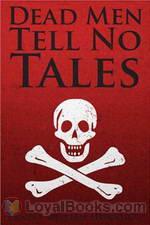 Dead Men Tell No Tales
Dead Men Tell No Tales
Ernest William Hornung (June 7, 1866 – March 22, 1921) was an English author. Hornung was the third son of John Peter Hornung, a Hungarian, and was born in Middlesbrough. He was educated at Uppingham during some of the later years of its great headmaster, Edward Thring. He spent most of his life in England and France, but in 1884 left for Australia and stayed for two years where he working as a tutor at Mossgiel station. Although his Australian experience had been so short, it coloured most of his literary work from A Bride from the Bush published in 1899, to Old Offenders and a few Old Scores, which appeared after his death... | |
By: Richard Jefferies (1848-1887) | |
|---|---|
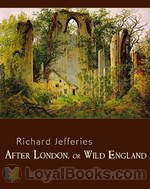 After London, or Wild England
After London, or Wild England
First published in 1885, After London, or Wild England is considered to be one of the earliest instances of post-apocalyptic fiction, describing the effects of an unspecified catastrophe that dramatically changes the face of England and its population. Divided into two parts, the first depicts the fall of civilization, as society reverts to its more primitive roots, while the second part is set years after the apocalyptic event and examines the evident changes in both natural scenery and social structure... | |
By: Ann Radcliffe (1764-1823) | |
|---|---|
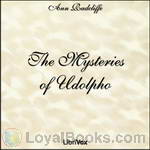 The Mysteries of Udolpho
The Mysteries of Udolpho
Considered a change agent in early Gothic romance; oft-referenced in later literary works or paid homage to by such authors as Jane Austen (influential novel ready by her heroine, Catherine Morland, in Northanger Abbey); Edgar Allen Poe (borrowed plot elements for the short story The Oval Portrait); and Sir Walter Scott. In The Mysteries of Udolpho, one of the most famous and popular gothic novels of the eighteenth century, Ann Radcliffe took a new tack from her predecessors and portrayed her heroine’s inner life, creating an atmosphere thick with fear, and providing a gripping plot that continues to thrill readers today... | |
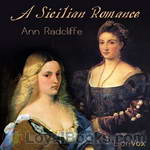 A Sicilian Romance
A Sicilian Romance
A Sicilian Romance is a Gothic novel by Ann Radcliffe. It was her second published work, and was first published anonymously in 1790. The plot concerns the turbulent history of the fallen aristocrats of the house of Mazzini, on the northern shore of Sicily, as related by a tourist who becomes intrigued by the stories of a monk he meets in the ruins of their doomed castle. The introduction to the 'Worlds Classics' edition notes that in this novel "Ann Radcliffe began to forge the unique mixture of the psychology of terror and poetic description that would make her the great exemplar of the Gothic novel, and the idol of the Romantics"... | |
By: Sophocles (495-406 BC) | |
|---|---|
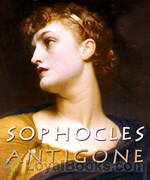 Antigone
Antigone
This is the final installment in Sophocles's Theban Plays, following Oedipus Rex and Oedipus at Colonus. Oedipus's daughter Antigone deliberately breaks the laws of Thebes when she buries her brother's body and is sentenced to death. She clashes with Creon, the King of Thebes, over what constitutes justice and morality: the laws of the state or the laws of the individual. | |
By: Robert Bloch | |
|---|---|
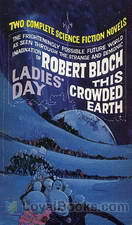 This Crowded Earth
This Crowded Earth
Robert Bloch was a prolific writer in many genres. As a young man he was encouraged by his mentor H. P. Lovecraft, and was a close friend of Stanley G. Weinbaum. Besides hundreds of short stories and novels he wrote a number of television and film scripts including several for the original Star Trek. In 1959 Bloch wrote the novel Psycho which Alfred Hitchcock adapted to film a year later. He received the Hugo Award, the World Fantasy Award, the Bram Stoker Award, and he is a past president of the Mystery Writers of America. Published in Amazing Stories in 1958, This Crowded Earth is a thriller set on an overpopulated Earth of the future. | |
By: Mark Phillips (Randall Garrett and Laurence M. Janifer) | |
|---|---|
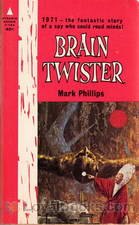 Brain Twister
Brain Twister
“Mark Phillips” is, or are, two writers: Randall Garrett and Laurence M. Janifer. Their joint pen-name, derived from their middle names (Philip and Mark), was coined soon after their original meeting, at a science-fiction convention. Both men were drunk at the time, which explains a good deal, and only one has ever sobered up. A matter for constant contention between the collaborators is which one. Originally published as That Sweet Little Old Lady, Brain Twister follows the adventures of FBI agent Kenneth J... | |
By: Robert Barr (1850-1912) | |
|---|---|
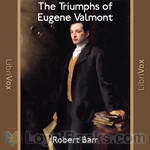 The Triumphs of Eugene Valmont
The Triumphs of Eugene Valmont
Short stories by a colleague of Jerome K. Jerome, and friend of Sir Arthur Conan Doyle. Barr probably wrote the first parody of Sherlock Holmes (included in this collection). He co-edited “The Idler” with Jerome. [written by Czechchris] | |
By: Elizabeth Gaskell (1810-1865) | |
|---|---|
 Cranford
Cranford
Cranford is the best-known novel of the 19th century English writer Elizabeth Gaskell. It was first published in 1851 as a serial in the magazine Household Words, which was edited by Charles Dickens. | |
 Sylvia's Lovers
Sylvia's Lovers
The novel begins in the 1790s in the coastal town of Monkshaven. Sylvia Robson lives with her parents on a farm, and is loved by her rather dull Quaker cousin Philip. She, however, meets and falls in love with Charlie Kinraid, a sailor on a whaling vessel, and they become engaged, although few people know of the engagement. But Charlie gets press-ganged and have to leave without a word. | |
By: Christopher Morley (1890-1957) | |
|---|---|
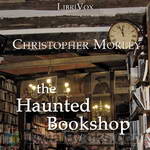 The Haunted Bookshop
The Haunted Bookshop
Roger Mifflin is the somewhat eccentric proprietor of The Haunted Bookshop, a second-hand bookstore in Brooklyn that is “haunted by the ghosts of all great literature.” Beginning with the arrival of a young advertising man and the mysterious disappearance of a certain volume from the shelves of the bookshop, a lively and often humorous tale of intrigue unfolds, generously sprinkled with liberal doses of Roger’s unique philosophy on literature and book selling. | |
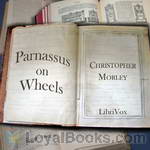 Parnassus on Wheels
Parnassus on Wheels
Parnassus on Wheels is about a fictional traveling book-selling business. The original owner of the business, Roger Mifflin, sells it to 39-year-old Helen McGill, who is tired of taking care of her ailing older brother, Andrew. | |
 Pipefuls
Pipefuls
A delightful collection of 48 essays on various topics of the human condition that caught his fancy. Witty, insightful and funny of course and on occasion thought provoking and even disturbing. From the preface "These sketches gave me pain to write; they will give the judicious patron pain to read; therefore we are quits. I think, as I look over their slattern paragraphs, of that most tragic hour—it falls about 4 p. m. in the office of an evening newspaper—when the unhappy compiler tries to round up the broodings of the day and still get home in time for supper... | |
By: William Hope Hodgson (1877-1918) | |
|---|---|
 The House on the Borderland
The House on the Borderland
In 1877, two gentlemen, Messrs Tonnison and Berreggnog, head into Ireland to spend a week fishing in the village of Kraighten. While there, they discover in the ruins of a very curious house a diary of the man who had once owned it. Its torn pages seem to hint at an evil beyond anything that existed on this side of the curtains of impossibility. This is a classic novel that worked to slowly bridge the gap between the British fantastic and supernatural authors of the later 19th century and modern horror fiction. Classic American horror writer H. P. Lovecraft lists this and other works by Hodgson among his greatest influences. | |
By: John R. Watson | |
|---|---|
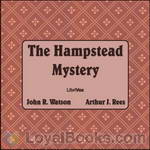 The Hampstead Mystery
The Hampstead Mystery
A Murder Whodunit!Location: Hampstead, England.Victim: Sir Horace Fewbanks, a distinguished High Court judge. Cause of death: gun shot wound.Investigator: Private Detective Crewe, a wealthy bachelor who has taken up crime detection as a hobby, because it provides intellectual challenges more satisfying even than playing twelve simultaneous boards against Russian chess champion Turgieff.His sidekick: Joe is a fourteen year old Cockney boy, whom Crewe saved from a life of crime by hiring him as a messenger-boy and shadower.Other whodunit elements: clues galore, suspects in abundance, an inquest, a trial, and an elegant resolution. | |
By: James Hay (1881-1936) | |
|---|---|
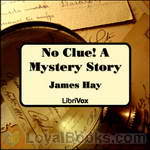 No Clue! A Mystery Story
No Clue! A Mystery Story
“No Clue! A Mystery Story” finds detective Jefferson Hastings at the home of wealthy but eccentric Arthur Sloane one hot summer night, when two other guests at Sloanehurst stumble across the body of young Mildred Brace lying dead on the lawn. Sloane’s daughter Lucille asks Hastings to help solve the crime, but Hastings gets surprisingly little help from anybody he interviews, including Mr. Sloane himself and even the mother of the victim. With few clues to aid him and nobody beyond suspicion,... | |
By: Marcel Proust (1871-1922) | |
|---|---|
 Swann's Way (Version 2)
Swann's Way (Version 2)
Swann's Way is the first book in the seven-volume work In Search of Lost Time, or Remembrance of Things Past, by Marcel Proust. It is a novel written in the form of an autobiography. Proust's most prominent work, it is popularly known for its length and the notion of involuntary memory, the most famous example being the "episode of the madeleine." | |
By: John Greenleaf Whittier (1807-1892) | |
|---|---|
 Christmas Carmen
Christmas Carmen
John Greenleaf Whittier was an American Quaker poet and advocate of the abolition of slavery in the United States. Frequently listed as one of the Fireside Poets, Whittier was influenced by the Scottish poet Robert Burns. | |
By: John Meade Falkner (1858-1932) | |
|---|---|
 Moonfleet
Moonfleet
The novel is set in a fishing village in Dorset during the mid 18th century. The story concerns a 15 year old orphan boy, John Trenchard, who becomes friends with an older man who turns out to be the leader of a gang of smugglers.One night John chances on the smugglers’ store in the crypt beneath the church. He explores but hides behind a coffin when he hears voices. He finds a locket which contains a parchment, in the coffin belonging to Colonel Mohune. Unfortunately after the visitors leave,... | |
 The Lost Stradivarius
The Lost Stradivarius
The Lost Stradivarius (1895), by J. Meade Falkner, is a short novel of ghosts and the evil that can be invested in an object, in this case an extremely fine Stradivarius violin. After finding the violin of the title in a hidden compartment in his college rooms, the protagonist, a wealthy young heir, becomes increasingly secretive as well as obsessed by a particular piece of music, which seems to have the power to call up the ghost of its previous owner. Roaming from England to Italy, the story involves family love, lordly depravity, and the tragedy of obsession | |
By: James Otis (1848-1912) | |
|---|---|
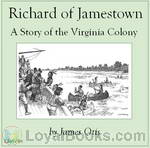 Richard of Jamestown: A Story of the Virginia Colony
Richard of Jamestown: A Story of the Virginia Colony
Richard of Jamestown by James Otis was written for children with the purpose to show them the daily home life of the Virginia colonists. It is written from the viewpoint of a young boy named Richard Mutton. | |
By: Edward Elmer Smith (1890-1965) | |
|---|---|
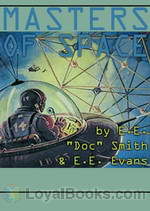 Masters of Space
Masters of Space
The Masters had ruled all space with an unconquerable iron fist. But the Masters were gone. And this new, young race who came now to take their place–could they hope to defeat the ancient Enemy of All? | |
By: Louis Hémon (1880-1913) | |
|---|---|
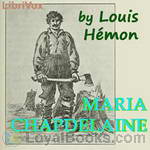 Maria Chapdelaine
Maria Chapdelaine
Maria Chapdelaine is one of the most famous French Canadian novels. It is the love story of Maria Chapdelaine, daughter of a peasant family in the Saguenay-Lac-St-Jean region of Quebec, in the 1900s. It is often seen as an allegory of the French Canadian people, describing simple joys and great tragedies, the bonds of family, the importance of faith, and the strength of body and spirit needed to endure the harshness of life in Canada’s northern wilderness. | |
By: Johnny Gruelle (1880-1938) | |
|---|---|
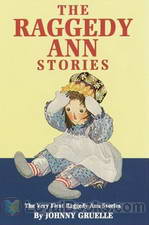 Raggedy Ann Stories
Raggedy Ann Stories
To the millions of children and grown-ups who have loved a Rag Doll, the author dedicated these stories. Now listen as Shannon reads to you Raggedy Ann’s exciting adventures; as gentle and charming today, as they were when first published in 1918. Find out what is written on her candy heart, what was the gift the fairies brought, and all about Raggedy Ann’s new sisters. | |
By: Walter Besant (1836-1901) | |
|---|---|
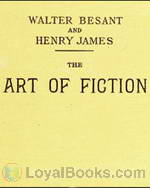 The Art of Fiction
The Art of Fiction
A lecture on the art of fiction, given by the English critic Walter Besant on April 25, 1884, and an answer to the lecture by American writer Henry James in the same year. | |
By: U. Waldo Cutler | |
|---|---|
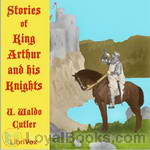 Stories of King Arthur and His Knights
Stories of King Arthur and His Knights
Stories of King Arthur and His Knights. Retold from Malory’s “Morte dArthur”. | |
By: E.E. “Doc” Smith (1890-1965) | |
|---|---|
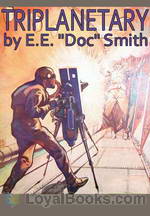 Triplanetary
Triplanetary
“Doc” E.E. Smith pretty much invented the space opera genre, and Triplanetary is a good and well-known example. Physics, time, and politics never stand in the way of a plot that gallops ahead without letup. Having earned a PhD in chemical engineering, it’s understandable that the heroes of Smith’s story are all scientists. He didn’t want to be constrained by the limits of known science, however, so in his hands the electromagnetic spectrum becomes a raw material to be molded into ever-more amazing and lethal forms, and the speed of light is no bar to traveling through the interstellar void... | |
By: Donald McGibney | |
|---|---|
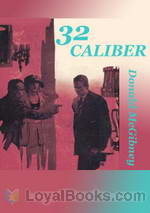 32 Caliber
32 Caliber
The recent interest that's being generated in the pulp fiction writers of the 1920s has lead to many of the books of that genre being resurrected and read once again. For modern-day readers, these represent what are now called “airport-lounge reads” and ideal for those few hours that you have to kill waiting in an airport or railway station, while traveling or on holiday, when you don't want anything too heavy to weigh you down! Pulp fiction, so called because the books were generally printed on cheaper paper made from recycled wood pulp, had certain characteristics... | |
By: C. J. Dennis (1876-1938) | |
|---|---|
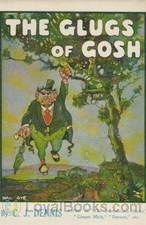 The Glugs of Gosh
The Glugs of Gosh
First published in 1917, The Glugs of Gosh satirizes Australian life at the start of the twentieth century – but the absurdities it catalogs seem just as prevalent at the start of the twenty-first. The foolishness of kings, the arrogance of the elite, the gullibility of crowds, the pride of the self-righteous, the unthinking following of tradition – all find themselves the targets of C. J. Dennis’ biting wit. | |
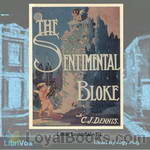 The Songs of a Sentimental Bloke
The Songs of a Sentimental Bloke
The Songs of a Sentimental Bloke is a verse novel by Australian novelist and poet C. J. Dennis. The book sold over 60,000 copies in nine editions within the first year, and is probably one of the highest selling verse novels ever published in Australia.The novel tells the story of Bill, a larrikin of the Little Lonsdale Street Push, who is introduced to a young woman by the name of Doreen. The book chronicles their courtship and marriage, detailing Bill’s transformation from a violence-prone gang member to a contented husband and father. C.J. Dennis went on to publish three sequels to this novel: The Moods of Ginger Mick (1916), Doreen (1917) and Rose of Spadgers (1924) | |
By: James Edward Austen-Leigh (1798-1874) | |
|---|---|
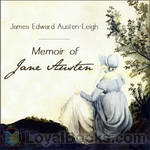 Memoir of Jane Austen
Memoir of Jane Austen
“The Memoir of my Aunt, Jane Austen, has been received with more favour than I had ventured to expect. The notices taken of it in the periodical press, as well as letters addressed to me by many with whom I am not personally acquainted, show that an unabated interest is still taken in every particular that can be told about her. I am thus encouraged not only to offer a Second Edition of the Memoir, but also to enlarge it with some additional matter which I might have scrupled to intrude on the public if they had not thus seemed to call for it... | |
By: Luis Vaz de Camões (1524-1580) | |
|---|---|
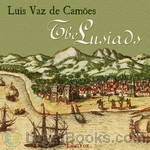 The Lusiads
The Lusiads
The Lusiads (Os Lusíadas) is a Portuguese epic poem, written in the 16th century by Luis Vaz de Camões. The poem tells the tale of the Portuguese discoveries in the 15th and 16th centuries, specially the voyage to India by Vasco da Gama. Modelled after the classic epic tradition, Camões' Lusiads are considered not only the first literary text in Modern Portuguese, but also a national epic of the same level as Vergil's Aeneid. In the 19th century, Sir Richard Francis Burton translated Camões' Lusiads, in what he considered "the most pleasing literary labour of his life". | |